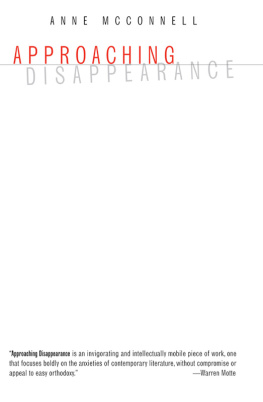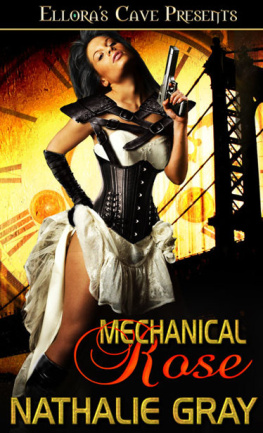Nathalie Sarraute - The Age of Suspicion: Essays on the Novel
Here you can read online Nathalie Sarraute - The Age of Suspicion: Essays on the Novel full text of the book (entire story) in english for free. Download pdf and epub, get meaning, cover and reviews about this ebook. year: 1990, publisher: George Braziller, genre: Detective and thriller. Description of the work, (preface) as well as reviews are available. Best literature library LitArk.com created for fans of good reading and offers a wide selection of genres:
Romance novel
Science fiction
Adventure
Detective
Science
History
Home and family
Prose
Art
Politics
Computer
Non-fiction
Religion
Business
Children
Humor
Choose a favorite category and find really read worthwhile books. Enjoy immersion in the world of imagination, feel the emotions of the characters or learn something new for yourself, make an fascinating discovery.

- Book:The Age of Suspicion: Essays on the Novel
- Author:
- Publisher:George Braziller
- Genre:
- Year:1990
- Rating:3 / 5
- Favourites:Add to favourites
- Your mark:
- 60
- 1
- 2
- 3
- 4
- 5
The Age of Suspicion: Essays on the Novel: summary, description and annotation
We offer to read an annotation, description, summary or preface (depends on what the author of the book "The Age of Suspicion: Essays on the Novel" wrote himself). If you haven't found the necessary information about the book — write in the comments, we will try to find it.
The Age of Suspicion: Essays on the Novel — read online for free the complete book (whole text) full work
Below is the text of the book, divided by pages. System saving the place of the last page read, allows you to conveniently read the book "The Age of Suspicion: Essays on the Novel" online for free, without having to search again every time where you left off. Put a bookmark, and you can go to the page where you finished reading at any time.
Font size:
Interval:
Bookmark:
Nathalie Sarraute
The Age of Suspicion
Translated from the French by Maria Jolas
Contents
FROM DOSTOEVSKI TO KAFKA
T HE NOVEL , we constantly hear it said today, falls into two quite distinct categories: the psychological novel and the novel 'in situation'. On the one hand, Dostoievski and, on the other, Kafka. Indeed, if we are to believe Roger Grenier, even the news-item and this illustrates Oscar Wilde's famous paradoxdivides quite naturally into these two genres. However, in life as well as in literature, Dostoievski characters (or so it appears) are becoming less frequent. 'The genius of our epoch,' M. Grenier notes 'inclines in favour of Kafka... and even in Soviet Russia, Dostoievski figures are no longer to be seen in the Court rooms.' Today, he declares, we are faced with 'homo absurdus, the lifeless inhabitant of a century whose prophet is Kafka.'
This dearth of what is called with a certain irony 'the psychological' (held between quotes as though between tongs), and which, it seems, is due to the lot of modern man who, overwhelmed by our mechanical civilisation, is reduced, according to Claude-Edmonde Magny, 'to the triple determinism of hunger, sexuality and social status: Freud, Marx and Pavlov,' seems, nevertheless, to have inaugurated for both writer and reader an era of security and hope.
The time was well past when Proust had boldly believed that 'by urging his impression on as far as his powers of penetration would allow,' (he could) 'try to reach the ultimate deep where lie truth, the real universe, our most authentic impression.' Having learned the lesson of successive disappointments, everybody knew now that there was no ultimate deep. 'Our authentic impression' had been found to have any number; and they extended one beneath the other, ad infinitum.
The deep uncovered by Proust's analyses had already proved to be nothing but a surface. A surface too, the one that the interior monologue, basis of so many legitimate hopes, had succeeded in identifying. And the immense progress achieved by psychoanalysis, which stopped at nothing, passing through several deeps at one time, had shown the inefficacy of classic introspection, and inspired doubts as to the ultimate value of all methods of research.
Homo absurdus, therefore, was Noah's dove, the messenger of deliverance.
Now, at last, it was permissible to leave behind without remorse all sterile endeavour, all wearisome floundering, all nerve-racking splitting of hairs; modern man, having become a soulless body tossed about by hostile forces, was nothing, when all was said and done, but what he appeared to be on the surface. The inexpressive torpor, the immobility that a quick glance could observe in his face when he let himself go, hid no interior reactions. The 'tumult like unto silence' that adherents of 'the psychological' had thought they saw in his soul was, after all, merely silence.
His consciousness was composed of nothing but a superficial network of 'conventional opinions taken over just as they were from the group to which he belonged,' and these very commonplaces hid 'a profound nothingness,' an almost total 'absence from self.' The so-called 'heart of hearts,' the 'ineffable intimacy with oneself,' had been nothing but a delusion and a snare. 'The psychological,' which had been the source of such great disappointment and sorrow, did not exist.
This soothing conclusion brought with it the delightful sense of restored vigour and optimism that usually accompanies liquidations and renunciations.
Now it was possible to gather one's forces and, forgetting past misadventures, start over again, 'on new bases.' On every side, more accessible, pleasanter prospects seemed to be opening up. The very promising art of the cinema would allow the novel which, as a result of so many fruitless efforts, had reassumed a touching, juvenile modesty, to benefit by its entirely new techniques. By virtue of a beneficent contagion, the wholesome simplicity of the new American novel, with its somewhat unpolished vigour, would restore a certain vitality and sap to our own, which had become weakened by over-indulgence in analysis, and was threatened with senile dessication. The literary object would be able to recapture the full outlines, the hard, smooth, finished aspect of fine classical works. The 'poetic' and purely descriptive elements in which the novelist too often saw merely vain ornamentation, and which he only parsimoniously allowed to pass after minute filtering, would lose its humiliating role of auxiliary, exclusively subject to the demands of psychology, and blossom out any-and-everywhere, unrestrained. By the same token, style, to the immense satisfaction of those 'persons of taste' who inspired such fearful apprehensions in Proust, would recover the pure lines and sober elegance that are so little compatible with the contortions and stampings, the finespun subtleties, or the mired ponderousness, of 'the psychological.'
And, quite close to us, Kafka, whose message combined so felicitously with that of the Americans, showed what still unexplored regions could open up for the writer, once he was rid of the unfortunate near-sightedness that had forced him to examine each object at close range, and kept him from seeing further than the end of his own nose.
Lastly, those who, despite all these assurances and promises, still had certain scruples, and continued to lend an anxious ear, to be convinced that behind that dead silence there subsisted no echo of the former tumult, could feel fully reassured.
Contrary to the formless, soft matter that yields and disintegrates under the scalpel of analysis, this fragment of the universe within whose boundaries the new novel prudently remained confined, formed a hard, compact whole, that was absolutely indivisible. Its very hardness and opacity preserved its interior complexity and density and conferred upon it a force of penetration that allowed it to attain not to the superficial, arid regions of the reader's intellect, but to those infinitely fertile, 'listless and defenceless regions of the sentient soul.' It provoked a mysterious, salutary shock, a sort of emotional commotion that made it possible to apprehend all at once, and as in a flash, an entire object with all its nuances, its possible complexities, and evenif, by chance, these existedits unfathomable depths. There was therefore nothing to lose and, apparently, everything to be gained.
When Albert Camus's The Outsider (The Stranger) appeared, it was permissible to believe with good reason that it would fulfil all hopes. Like all works of real value it came at the appointed time; it corresponded to our expectations; it crystallised all our suspended stray impulses. From now on, we need envy no one. We too had our homo absurdus. And he enjoyed the undeniable advantage over even Dos Passos's and Steinbeck's heroes of being depicted not at a distance and from the outside, as they were, but from within, through the classical process of introspection, so dear to adherents of 'the psychological': we could ascertain his inner nothingness at close range and, as it were, from a front box. In fact, as Maurice Blanchot wrote, 'Camus wants to let us see the inner nothingness of his hero and, through it, our own nothingness... Meursault is man stripped of all the ready-made garments with which society clothes the normal void of his being: his conscience... The sentiments and psychological reactions he tries to find in himself (sadness as his mother lies dying, love for Maria, remorse at the murder of the Arab) he does not find: indeed, all he finds is a view that is absolutely similar to the view that others may have of his behaviour.'
And the fact is that during this scene of his mother's funeral, although he does occasionally discover within himself a few of the sentiments that classical analysis, albeit with a certain timorous fluster, succeeded in uncovering, a few of the fugitive thoughts, 'shadowy and shy,' that it detected (among so many others) 'gliding by with the furtive speed of fish'such as the pleasure he derives from a lovely morning in the country, the disappointment he feels at the thought of the outing this funeral has made him miss, or the memory of what he usually does at this time of morning, on the contrary, everything that in any way concerns his mother, and not only ordinary sorrow (without surprising us too much, he might have experienced a sense of deliverance and satisfaction, like one of Virginia Woolf's heroines), but all sentiment or thought whatsoever appears to have been completely abolished, as though by a magic wand. In this well-scrubbed, well-adorned conscience, there is not the slightest scrap of memory that ties back to childhood impressions, not the palest shadow of those ready-made sentiments that the very persons who think they are best protected against conventional emotions and literary reminiscences, feel slip through them.
Next pageFont size:
Interval:
Bookmark:
Similar books «The Age of Suspicion: Essays on the Novel»
Look at similar books to The Age of Suspicion: Essays on the Novel. We have selected literature similar in name and meaning in the hope of providing readers with more options to find new, interesting, not yet read works.
Discussion, reviews of the book The Age of Suspicion: Essays on the Novel and just readers' own opinions. Leave your comments, write what you think about the work, its meaning or the main characters. Specify what exactly you liked and what you didn't like, and why you think so.

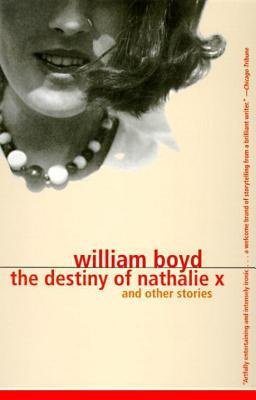

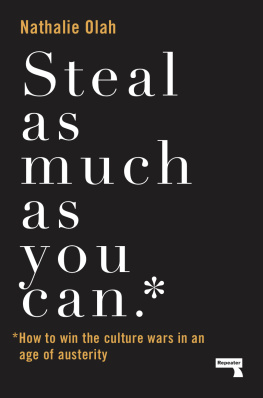
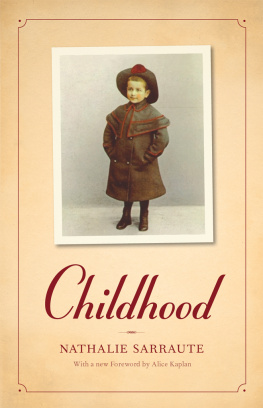
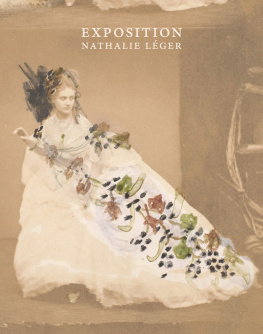
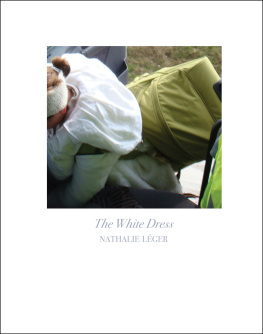
![Nathalie Nahai [Nathalie Nahai] - Webs of Influence: The Psychology of Online Persuasion, 2nd Edition](/uploads/posts/book/124053/thumbs/nathalie-nahai-nathalie-nahai-webs-of.jpg)
